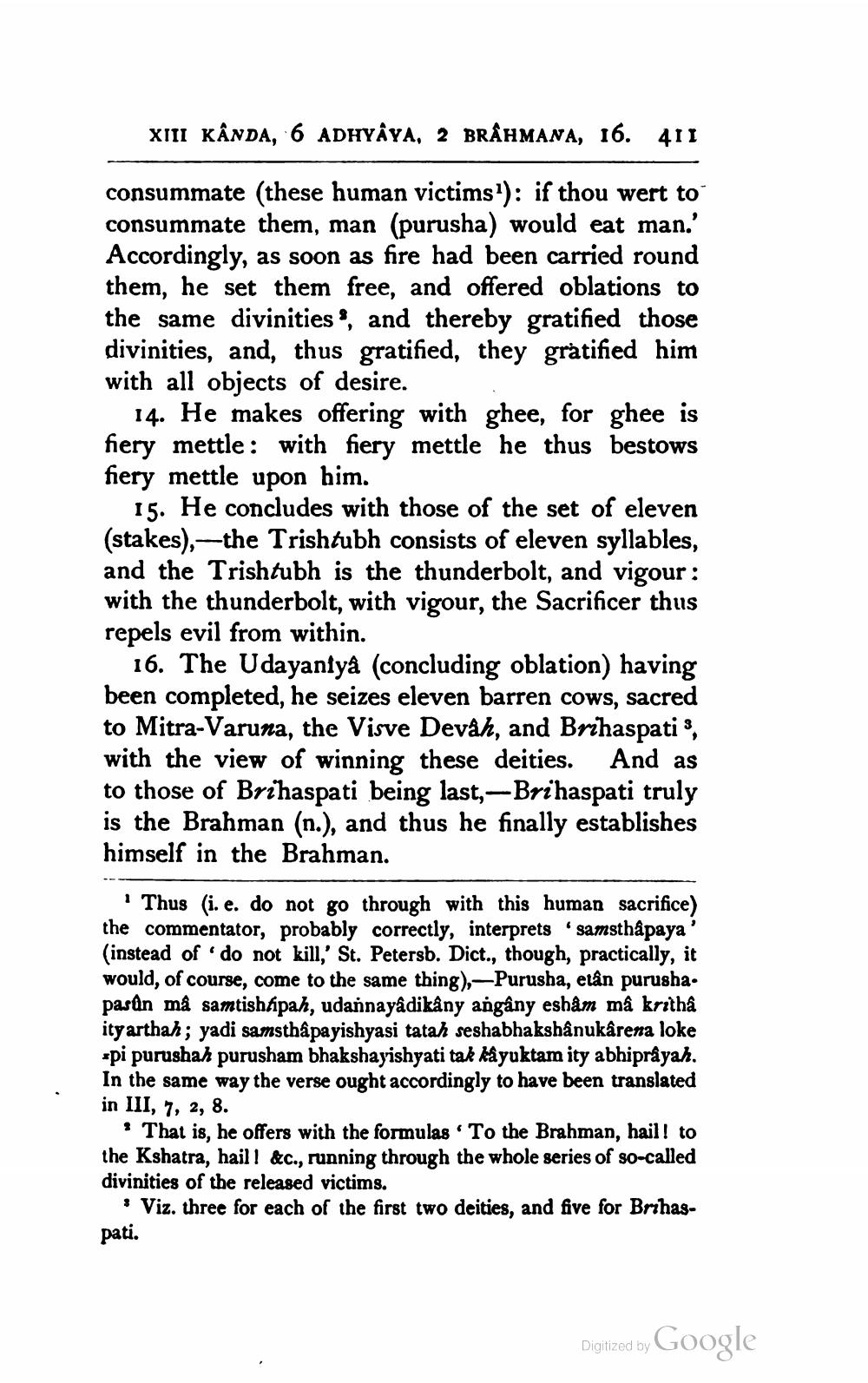________________
XIII KÂNDA, 6 ADHYAYA, 2 BRÂHMANA, 16. 411
consummate (these human victims?): if thou wert to consummate them, man (purusha) would eat man.' Accordingly, as soon as fire had been carried round them, he set them free, and offered oblations to the same divinities, and thereby gratified those divinities, and, thus gratified, they gratified him with all objects of desire.
14. He makes offering with ghee, for ghee is fiery mettle: with fiery mettle he thus bestows fiery mettle upon him.
15. He concludes with those of the set of eleven (stakes),--the Trishtubh consists of eleven syllables, and the Trishtubh is the thunderbolt, and vigour : with the thunderbolt, with vigour, the Sacrificer thus repels evil from within.
16. The Udayaniyê (concluding oblation) having been completed, he seizes eleven barren cows, sacred to Mitra-Varuna, the Visve Devåh, and Brihaspati , with the view of winning these deities. And as to those of Brihaspati being last,-Brihaspati truly is the Brahman (n.), and thus he finally establishes himself in the Brahman.
"Thus (i. e. do not go through with this human sacrifice) the commentator, probably correctly, interprets samsthåpaya (instead of do not kill,' St. Petersb. Dict., though, practically, it would, of course, come to the same thing),—Purusha, etân purusha. pasûn må samtishapah, udannayadikany angâny eshâm må kritha ity arthah; yadi samsthâpayishyasi tatah seshabhakshầnukarena loke #pi purushah purusham bhakshayishyati tak käyuktam ity abhipråyah. In the same way the verse ought accordingly to have been translated in III, 7, 2, 8.
. That is, he offers with the formulas. To the Brahman, hail! to the Kshatra, haill &c., running through the whole series of so-called divinities of the released victims.
· Viz. three for each of the first two deities, and five for Brihas
pati,
Digitized by Google




